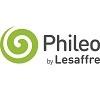The use of three different yeast solutions to reduce the damaging effects of heat stress in dairy cows has shown highly promising results according to Phileo Lesaffre Animal Care, France.
The company’s solutions, fed as supplements to heat stressed dairy cows, were yeast probiotic, yeast paraprobiotic* and selenium yeast, with all three successfully helping to promote improvements in rumen function, energy balance and immunity.
As a result, Phileo has concluded that the three treatments are ‘good candidates’ for use in combatting the devastating effects of rising temperatures and high levels of humidity.
The decision to test the potential of yeast-based derivatives was prompted by research showing that while dairy cows produce less milk during heat stress, only about 50% of yield loss is caused by the animals reducing their feed intake. The other 50% is due to metabolic factors, raising the prospect that yeast-based solutions might help alleviate this aspect of heat stress damage.
“Heat stress is wide-ranging in its negative impact on dairy cows, especially those at the top of the production league,” said Valentin Nenov, Phileo’s Global Ruminant Manager. “It affects feed intake, cow body temperature, maintenance requirements and metabolic processes, feed efficiency, milk yield, reproductive efficiency, cow behaviour and disease incidence.”
These effects are well documented, with various strategies being tried to prevent cows from suffering the full consequences of heat stress. These include adjusting feeding regimes and investing in environmental and mechanical measures to keep stock as healthy and productive as possible when temperature and high humidity conditions start to become a problem.
“As a specialist animal health company,” said Dr. Nenov, “our focus is on nutritional solutions, especially the role which yeast probiotic, yeast para-probiotic and selenium yeast might have in reducing the negative effects of heat stress in dairy herds.”
Phileo has three yeast-based products in its portfolio.
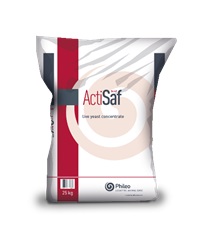
The first is Actisaf®, a live yeast which acts as a probiotic and has been shown, across many studies, to deliver significant improvements in rumen function.
Acknowledged for its ability to improve fibre digestion and stabilise the rumen, Actisaf®’s use with heat-stressed dairy cows helped to reduce the respiratory rate of treated animals while also delivering increased milk and milk solids production.
The product is also able to 'preferentially promote’ certain ‘bacteria of interest’ in relation to acidosis, helping to combat a condition which has the capacity to seriously damage heat stressed cows.
Another observed Actisaf® benefit is its ability to change important blood parameters, such as glucose. This has a direct impact on the physiology and metabolism of cows during heat stress, given that glucose becomes the major source of energy for cows at this point.
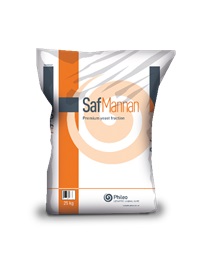
The second product is Safmannan®. This is a premium yeast parietal fraction which Phileo has assessed according to its potential modulation of the immune system. Fed along with Actisaf®, it helped trigger a supportive immune response, which is particularly important during heat stress when the immune function of affected cows can be adversely affected.
The combined effect of Actisaf® and Safmannan® was also tested in relation to their impact on somatic cell count (SCC) levels. This was in response to evidence that rising SCC is a common problem in heat stressed herds.
In this context, trials involving eight Dutch dairy farms recorded a reduction in SCC from an average of 280,000 per farm to below 200,000. This was a result of Safmannan® being fed as a supplement to cows which had already been receiving Actisaf® for a prolonged period.
The third product, Selsaf®, is a selenium-enriched yeast which Phileo tested for its effectiveness as an oxidative-stress modulator.
Many causes of stress, such as diet, transportation and heat stress, can be traced to an upsetting of the balance between the pro-oxidant and anti-oxidant systems of affected animals.
While extended exposure to such stress potentially reduces animal performance and product quality, giving affected cows an adequate supply of selenium in their diet is seen as essential to maintaining their oxidant balance.
When used by Phileo with heat stressed cows, Selsaf® delivered a significant reduction in rectal temperature and respiratory rate and helped produce lower SCC numbers. It also led to a significant increase in the selenium content of milk and raised the active presence of the major antioxidant enzyme, glutathione peroxidase.
The company's conclusion is that giving Selsaf® to heat stressed cows successfully boosted both the antioxidant status of the animals concerned and their natural defences, benefits which are seen as being of ‘great interest’ in helping to combat the negative impact of heat stress on dairy cows.
Phileo also said that its analysis showed that all three of its yeast-based products could be considered by farmers as offering ‘additional promising solutions’ for use in alleviating the effects of heat stress in dairy cows. *yeast paraprobiotic: inactivated (non-viable) microbial cells or cell fractions, used to confer a health benefit when administered orally (Taverniti and Guglielmetti, 2011).
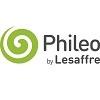
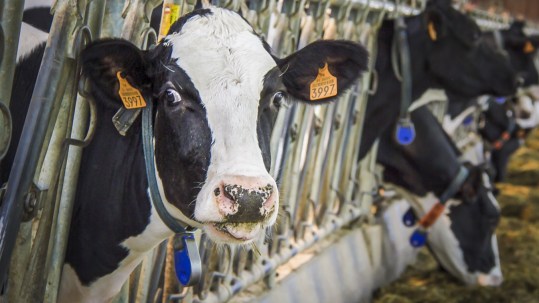

 The first is Actisaf®, a live yeast which acts as a probiotic and has been shown, across many studies, to deliver significant improvements in rumen function.
The first is Actisaf®, a live yeast which acts as a probiotic and has been shown, across many studies, to deliver significant improvements in rumen function. 
